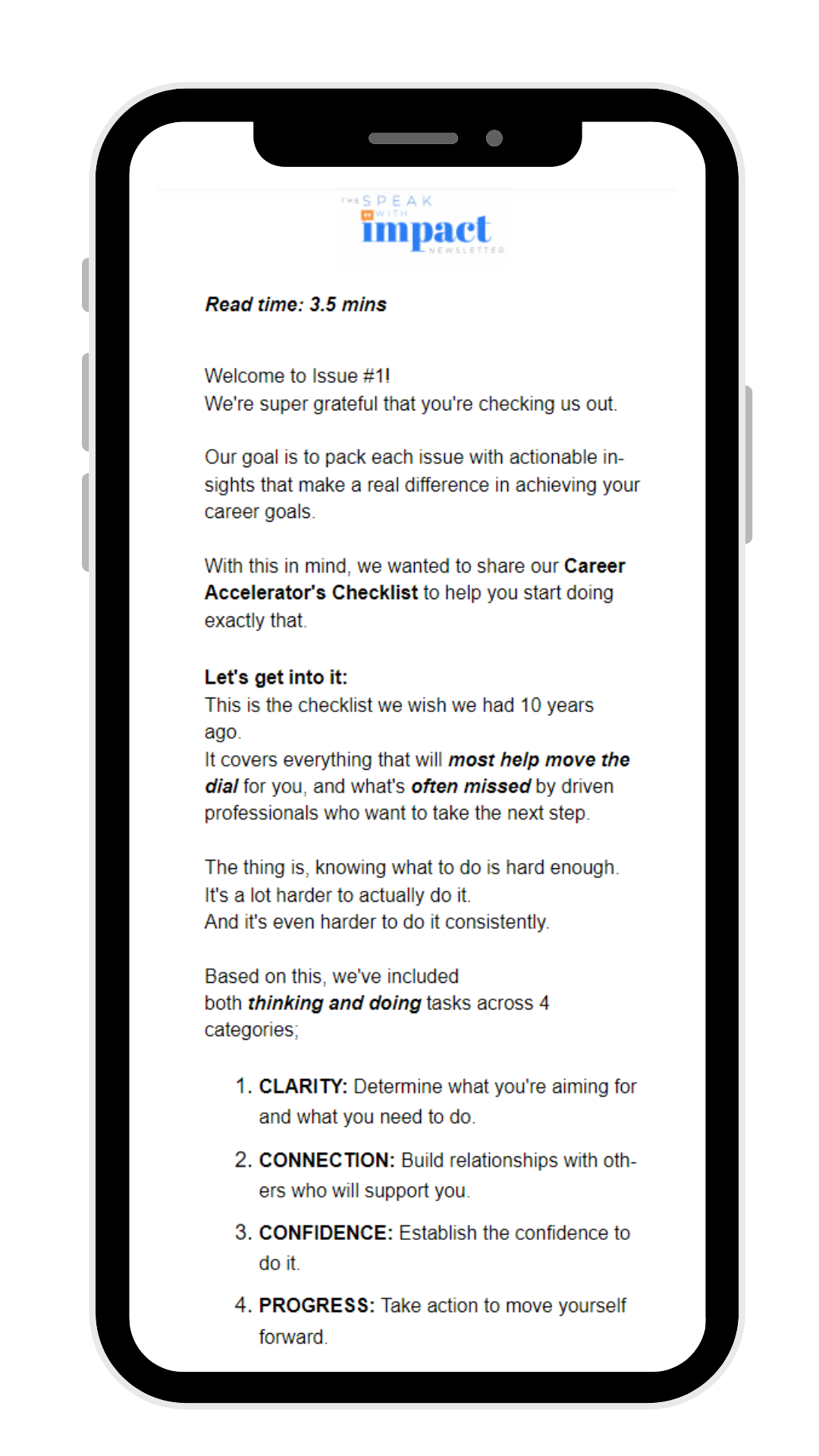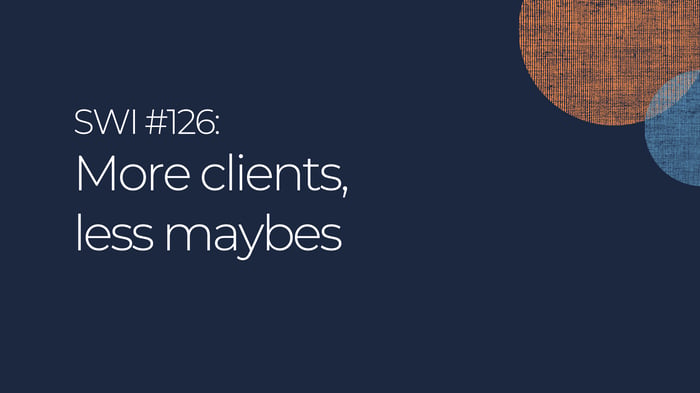Read time: 2 mins
We’ve all had that sales conversation that seems to be going well...
They’re nodding, asking questions… and then they say 'okay, I'll think about it'.
And then they disappear without a word.
No reply. No reason. Just gone.
It's easy to chalk it up to a natural part of the sales process.
But actually, usually you can avoid most 'maybes'.
Today we're going to give you some tips on how.
And it's not about being pushy or sleazy.
It's about asking the right questions to uncover uncertainty.
Most leads will ghost you when they're unsure -
If they're not fully confident that you, and the solution you're offering will really work for them, you're not likely so secure a sale.
So here are 3 simple questions you can ask in a sales conversation to uncover what’s really going on.
This will help you uncover what they're uncertain about, so you can help them move forward.
3 QUESTIONS TO ASK IN A SALES CONVERSATION TO GET LESS 'MAYBES'
1. “What would prevent you from about moving forward?”
Why it works:
It gives your lead permission to share what they still need to know and feel comfortable with, without feeling like they’re being difficult.
By asking this, you'll uncover concerns you need to address, e.g.:
- “We had an accountant before who made a mistake with our BAS, and it nearly cost us big.”
- “A lawyer we used years ago totally overcharged us.”
- “I’ve been burned by advice that sounded good but didn’t apply to my business.”
This is your moment to show credibility and care.
Explain how your process is different, walk them through how you protect against those risks—or, if it’s not the right fit, say so.
That honesty builds long-term trust.
2. “What else do you need to feel confident saying yes?”
Why it works:
It reframes the conversation around what’s missing, instead of trying to push them over the line.
You might hear things like:
- “I need to check this with my business partner.”
- “We’re not sure how it fits with our other advice.”
- “Can you help me understand exactly what we’re getting and what’s included?”
This is great intel! It allows you to give them clarity.
Offer to have an open conversation with their other decision makers.
Share a short summary of deliverables, or walk them through next steps.
Take away the uncertainty.
3. “What would stop this from working for you?”
Why it works:
It surfaces practical blockers (budget, time, scope, etc.) that they might not say unless prompted.
What you’ll may uncover:
- “I just don’t have time to deal with this right now.”
- “We’ve got cash flow issues and can’t commit to a fixed-fee service this quarter.”
- “Honestly, I’m not sure I’ll get the documents together in time for this process.”
How to handle it?
Be up front.
If their situation means it’s not a good fit right now, say so.
Or, if it is workable, adjust the timeline, tweak the scope, or give them support where it’s needed.
Bottom line:
The right questions won’t just help you close more sales.
They’ll help your potential clients feel genuinely looked after.
Whether they say yes or no, they’ll walk away feeling heard, respected, and confiden, which is exactly how referrals and long-term relationships are built.
And if you want help turning “maybe” conversations into confident yeses (or respectful nos)?
We help service-based businesses build sales conversations that feel good and get results.
Reach out to chat about how we can help:
Speak soon,
Lynne and Steve
TLDR:
- Most sales don’t fall through because of price, they fall through because of uncertainty.
- When potential clients say “I’ll think about it,” they’re often unsure about you, your service, or their ability to follow through.
- Ask these three questions to draw out their real concerns:
- What would prevent you from moving forward?
- What else do you need to feel confident saying yes?
- What would stop this from working for you?
- Use their answers to give clarity, show credibility, or if needed, to gracefully step away.
- This builds trust, leads to better-fit clients, and makes “maybes” a lot less common.
|


.png)